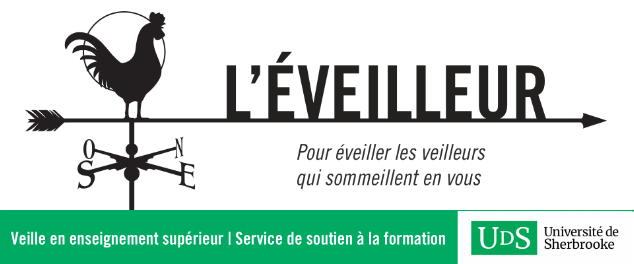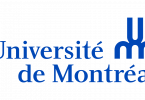Trouvé via Twitter dans le New York Times, un article refaisant le tour des principaux fournisseurs de MOOC (Massive Online Open Courses). Utile, parce que l’actualité de ce domaine bouge vite. On reparle donc des EdX, Udacity, mais particulièrement de Coursera. Après les universités du Michigan et de Pennsylvanie, Princeton et Stanford, ce dernier se serait allié avec plusieurs universités de recherche américaines – non les moindres – et étrangères pour bonifier son catalogue de cours (aux mathématiques, à l’informatique et l’ingénierie s’ajouteront la poésie, l’histoire et la… médecine !):
« Now, the partners will include the California Institute of Technology; Duke University; the Georgia Institute of Technology; Johns Hopkins University; Rice University; the University of California, San Francisco; the University of Illinois, Urbana-Champaign; the University of Washington; and the University of Virginia, where the debate over online education was cited in last’s month’s ousting — quickly overturned — of its president, Teresa A. Sullivan. Foreign partners include the University of Edinburgh in Scotland, the University of Toronto and EPF Lausanne, a technical university in Switzerland. »
Outre la canadienne Université de Toronto, on remarque la présence de l’École Polytechnique Fédérale de Lausanne qui offrira des cours en français, permettant de globaliser l’offre, ainsi que la University of Washington qui, moyennant des frais, offrirait des crédits pour qui réussit ces cours en ligne [mise à jour le 19 juillet 2012 : voir notre autre billet sur cette question] :
« Worldwide access is Coursera’s goal. “EPF Lausanne, which offers courses in French, opens up access for students in half of Africa,” Ms. Koller [informaticienne, co-fondatrice de Coursera] said. Each university designs and produces its own courses and decides whether to offer credit. »
On en apprend davantage sur le fonctionnement de ces partenariats :
“Coursera does not pay the universities, and the universities do not pay Coursera, but both incur substantial costs. Contracts provide that if a revenue stream emerges, the company and the universities will share it.
Although MOOCs will have to be self-sustaining some day — whether by charging students for credentials or premium services or by charging corporate recruiters for access to the best students — Ms. Koller and university officials said that was not a pressing concern. […]
The Coursera contracts are not exclusive, so many of its partner universities are also negotiating with several online educational entities.”
On rappelle que la clientèle des MOOC est principalement composée d’étudiants étrangers. Jusqu’à 2/3 pour Coursera. Aussi peu d’inquiétude de cannibalisation de la clientèle puisque les campus traditionnels “help people transition from 18 to 22, and that is a complicated thing,” said Mr. Page, [a] Michigan professor, adding that MOOCs would be most helpful to “people 22 to 102, international students and smart retired people.”
L’article présente l’attrait de si grands nombres d’étudiants pour des professeurs, mais montre aussi les avantages que ceux-ci en retirent avec leurs étudiants réguliers en présentiel [et qui se rapproche étrangement de la formation hybride de type flip classroom]:
« Each company offers online materials broken into manageable chunks, with short video segments, interactive quizzes and other activities — as well as online forums where students answer one another’s questions. […]
Professors say their in-class students benefit from the online materials. Some have rearranged their courses so that students do the online lesson first, then come to class for interactive projects and help with problem areas.
“The fact that students learn so much from the videos gives me more time to cover the topics I consider more difficult, and to go deeper,” said Dan Boneh, a Stanford professor who taught Coursera’s cryptography course. »
On se questionne aussi sur l’évaluation et la manière d’éviter le plagiat en ligne. Par exemple, on mentionne que Udacity aurait conclu une entente pour que ses étudiants puissent se rendre dans les centres d’examens que Pearson opère à travers le monde et paient 80 $ afin de passer des examens.
«Grading presents some questions, too. Coursera’s humanities courses use peer-to-peer grading, with students first having to show that they can match a professor’s grading of an assignment, and then grade the work of five classmates, in return for which their work is graded by five fellow students. But, Ms. Koller said, what would happen to a student who cannot match the professor’s grading has not been determined. »
La question de la certification et d’éventuels diplômes n’est jamais bien loin :
« Eventually, Ms. Koller said, students may be able to enroll in a set of MOOCs and emerge with something that would serve almost the same function as a traditional diploma.
“We’re not planning to become a higher-education institution that offers degrees,” she said, “but we are interested in what can be done with these informal types of certification.” »
Source : Lewin, Tamar, « Universities Reshaping Education on the Web », The New York Times, 17 juillet 2012.







La blogueuse Audrey Watters en parle également ici : « Considering Coursera’s Expansion », Hack Education, 17 juillet 2012. http://www.hackeducation.com/2012/07/17/considering-courseras-expansion/
À signaler dans son billet : la liste (partielle) des cours offerts par Coursera dans différentes universités. Elle réfère également à l’article de Steve Kolowich (Inside Higher Ed) et à l’éditorial de David Brooks (New York Times) sur le sujet.
Il semble que l’information à l’effet que l’Université de Washington offrirait des crédits pour des MOOC ait été exagérée : voir notre autre billet sur la question (http://www.ssfudes.com/veille/leveilleur/12822/non-luniversite-de-washington-ne-donnera-pas-de-credits-pour-un-mooc/).
Et on apprend par le Oncampus de Macleans.com aujourd’hui que l’université de Toronto offrira grâce à son partenariat avec Cousera, 5 MOOC non crédités dès cet automne, ce qui fera d’elle la première université canadienne à tenter l’aventure du MIT et de la Stanford Universtiy.
http://oncampus.macleans.ca/education/2012/07/19/university-of-toronto-to-offer-free-courses/